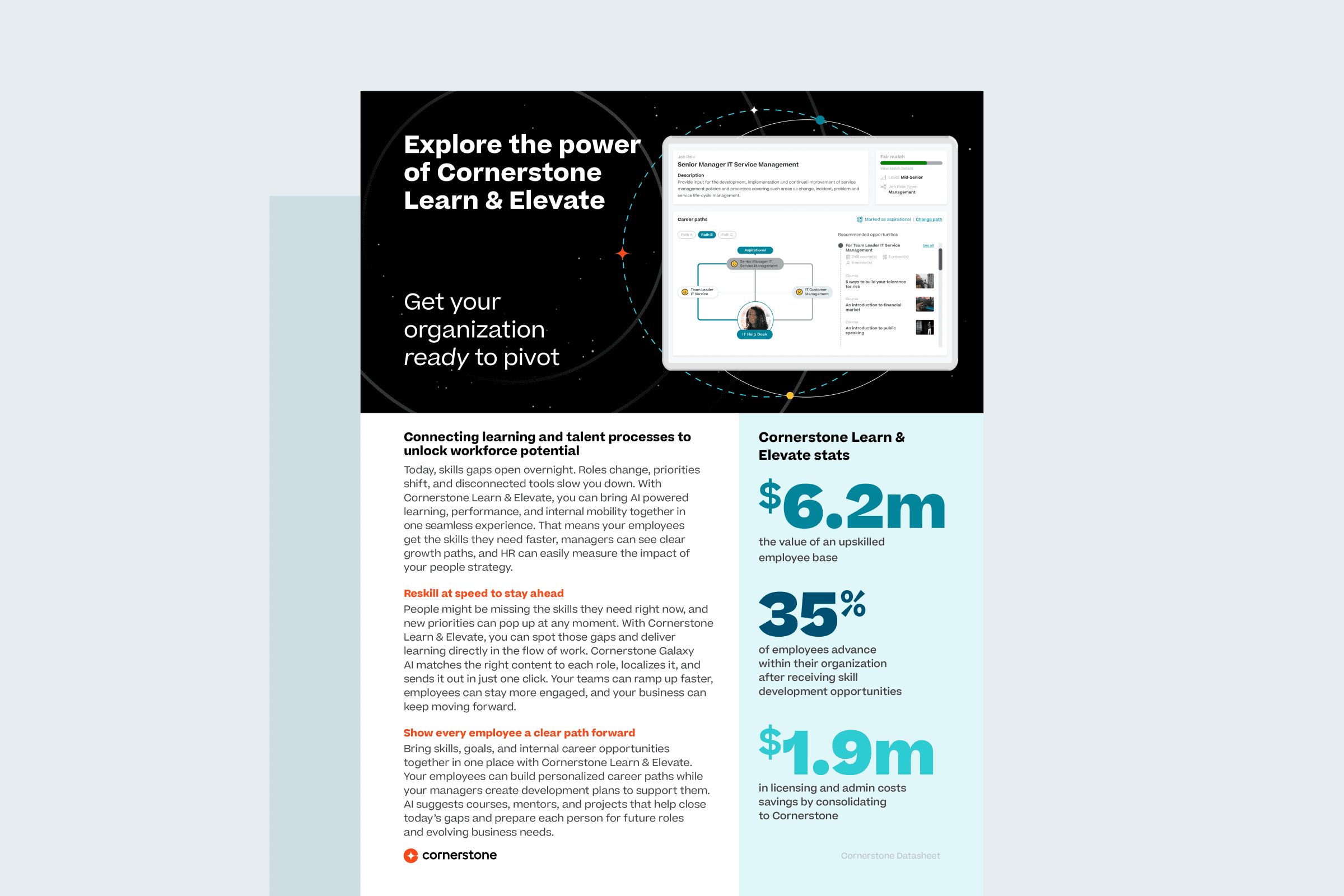The past few days have been a wild ride for football fans. Last week, Ohio State won the inaugural College Football Playoff championship. And with the teams set for Super Bowl XLIX, football seems to be on everybody's mind — ours included.
So when Aaron Sorensen, a succession planning expert and partner at Axiom Consulting Partners, mentioned that NFL teams offer a valuable lesson for HR leaders looking to create and maintain a strong pipeline of talented leaders, we wanted to know more. Team shakeups provide a glimpse into a franchise's potential direction and future growth, just as succession planning does for a business, he says. Here are four key lessons Sorensen says companies can learn from the football field:
1. Identify must-have skills and positions.
"If you look at successful franchises like the Green Bay Packers and the New England Patriots, you’ll see they are always thinking about which positions are critical to win," Sorensen says.
For teams, this means looking beyond the individual players to understand what specific skills they bring to the table, and how those skills add up to a winning team. For instance, great communication skills are important, regardless of whether they come from a star quarterback or another less prominent player. Likewise in business succession planning, it’s crucial to look at the entire talent picture and highlight the positions and skills that keep things running smoothly and help nurture your company's growth.
2. Constantly evaluate relative to competition.
Good football teams, Sorensen says, are constantly evaluating their talent relative to their competition, an ever-changing league of teams and players. This isn’t the case at many companies, which often rely on outdated succession plans that don’t reflect the current business environment. Thinking ahead is essential, he says, but it's more important to revise your plan every year rather than trying to forecast more than three years into the future.
"Succession planning can’t be a static thing," says Sorensen. "You have to be constantly thinking about the opportunities to grow talent within your business and revisit your strategy every year, just like you do with your greater business strategy."
3. Nurture your bench, but stay tuned to outsiders.
When it comes to succession planning, successful football teams are tuned into all sources of talent, not just their current roster. "Teams are always thinking about their own bench strength (existing players with potential to fill key positions)," Sorensen says. But they are also aware of other players that can bring new skills and help elevate the team’s performance in different ways.
The lesson for businesses? Nurture a strong talent pool both inside and outside your company to find the best fit for different positions. Dedicating time and resources to development opportunities for new and existing employees is a good way to attract talent as well as retain strong players.
4. Forget personas. Focus on leadership skills.
When the Indianapolis Colts released veteran quarterback Peyton Manning in 2012, the company faced a potential vacuum from the departure of one of the most successful quarterbacks of all time. The team focused on strong leadership and raw talent, signing Andrew Luck, who has since led the Colts to three playoff appearances, including two divisional titles.
The business takeaway? It’s easy to get hung up on replacing a strong personality that led your team to great success in the past. But, Sorensen said, companies run the risk of finding a replacement who looks like, talks like and acts like a previous leader, but whose skills aren’t as applicable as your company grows.
"When you’re evaluating the leader of the future, think about which capabilities are most important, what markets you’re in and where you want to go as a business," Sorensen says. "Remember that the skills that allow someone to be a strong individual contributor aren’t the same as being a good leader."
Photo: Flickr/Mike Morbeck


